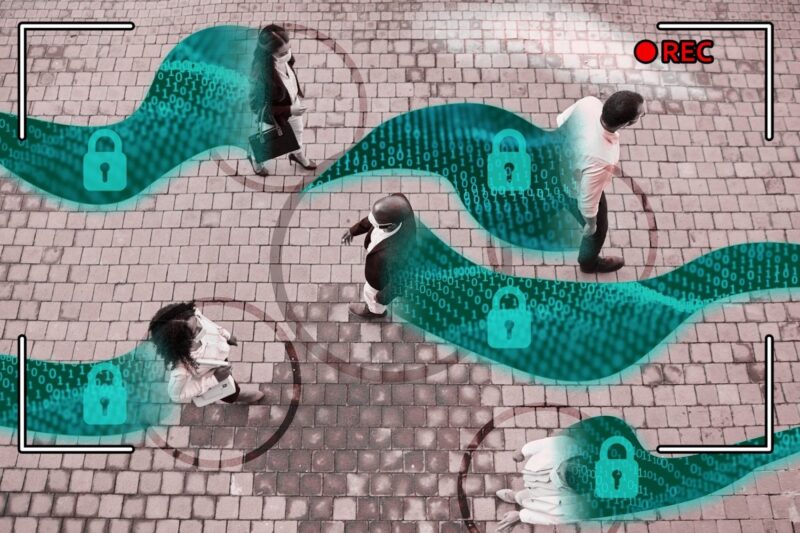
Security and Intelligence Agencies failed to inform ADAE about hundreds of wiretaps in a timely manner in 2023 and 2024



On 11 July 2024, the Hellenic Authority for Communication Security and Privacy (ADAE) published its 2023 report, in which it stated that the National Intelligence Service (EYP) under the authority of Prime Minister Kyriakos Mitsotakis and the Special Violent Crimes Squad (SVCD) delayed informing the ADAE about hundreds of orders lifting the secrecy of communications of citizens for national security reasons or for the investigation of serious crimes. (The same thing occurred in 2022)
More specifically, the report noted that EYP informed the ADAE during 2023 of 322 prosecutorial orders relating to the year 2022 (which had not been delivered earlier), and the SVCD informed the ADAE of a further 98 prosecution orders relating to the year 2022 which had not been communicated earlier.
As regards the lifting of the confidentiality of communications for the purposes of investigating serious crimes, ADAE reported that in 2023 it received:
The report also states that during 2024, the year of publication of the 2023 report, the Authority continues to receive notices concerning the lifting of the secrecy of communications from previous years. Therefore, it should be clarified that the above numbers refer to orders received during 2023 and do not represent the total number of orders issued during that year. In sum, the practice of unlawfully delaying notifying the independent authority of orders lifting the secrecy of citizens’ communications continues in 2024.
The implementation of the legislative framework regarding the operation of the Hellenic Authority for Communication Security and Privacy (ADAE) is a prerequisite for the fulfilment of its constitutionally enshrined purpose and the protection of the also constitutionally enshrined right to confidentiality of communications. Articles 19 (1a) and (2) of the Constitution provide that, “1. Secrecy of letters and all other forms of free correspondence or communication shall be absolutely inviolable. The guaranties under which the judicial authority shall not be bound by this secrecy for reasons of national security or for the purpose of investigating especially serious crimes, shall be specified by law. ** 2. Matters relating to the constitution, the operation and the functions of the independent authority ensuring the secrecy of paragraph 1 shall be specified by law.”
The legislative framework provides for the possibility of lifting the confidentiality of communications against citizens either for reasons of national security (Article 4 of Law 5002/2022) or for the investigation of crimes (Article 6 of Law 5002/2022). The overwhelming majority of the time, the lifting of confidentiality by the Greek security services is justified by reasons of national security rather than for the purpose of detecting crimes, which is a potential indication of an abuse of the concept of national security by the state authorities in order to monitor citizens for reasons other than those provided for by the law.
Indicatively, the annual activity reports of the Hellenic Data Protection Authority show that in 2018 orders lifting the confidentiality of communications for national security purposes amounted to 11,113 compared to 3,400 for the purpose of detecting crimes. The corresponding figures were respectively 11,680 and 2,302 in 2019 and 13,751 and 3,190 in 2020.
Furthermore, it should be noted that in its latest report, the ADAE also refers to a lack of transparency regarding the information provided by EYP, because it claims that of the data provided by EYP, it was not possible to record how many were waivers, how many extensions, and how many pauses or rejections of requests to lift the confidentiality of communications.
The state authorities must apply in full the legal framework for the procedure for lifting the confidentiality of a citizen’s communications, either for reasons of national security or for the investigation of crimes, in order to protect the constitutionally guaranteed right to confidentiality of communications (Article 19(1) of the Constitution).
However, in the case at hand, the security services failed to meet their obligation under Article 8(2) of Law 5002/2022, according to which the order to lift secrecy, or rejecting a request to do so, must be delivered to the ADAE without delay.
Bank Account number: 1100 0232 0016 560
IBAN: GR56 0140 1100 1100 0232 0016 560
BIC: CRBAGRAA
![]()
In a time where the very foundations of democracy are gradually being eroded by the rise of extreme nationalism, alt-right movements, the spread of disinformation and corporate capture, the efforts of organisations such as Vouliwatch are more relevant than ever.
We rely on the generosity of each and every one of you to continue with our efforts for more transparency and accounta
By financially supporting Vouliwatch you support our litigation strategy, our campaigns for transparency and accountability in the political system, the development of new civic tech tools, our research projects and last but not least our impartial and accurate